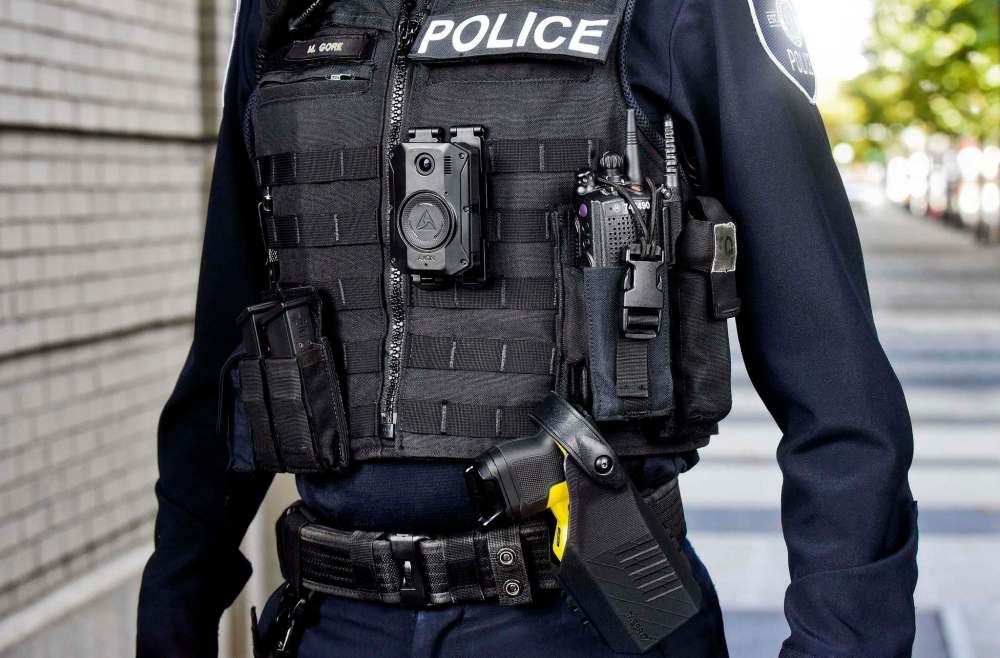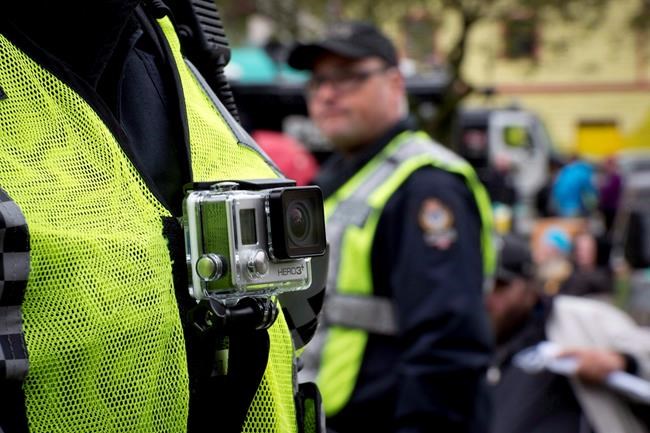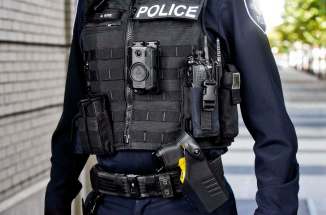Time to revive body-camera pilot project
Read this article for free:
or
Already have an account? Log in here »
To continue reading, please subscribe:
Monthly Digital Subscription
$0 for the first 4 weeks*
- Enjoy unlimited reading on winnipegfreepress.com
- Read the E-Edition, our digital replica newspaper
- Access News Break, our award-winning app
- Play interactive puzzles
*No charge for 4 weeks then price increases to the regular rate of $19.00 plus GST every four weeks. Offer available to new and qualified returning subscribers only. Cancel any time.
Monthly Digital Subscription
$4.75/week*
- Enjoy unlimited reading on winnipegfreepress.com
- Read the E-Edition, our digital replica newspaper
- Access News Break, our award-winning app
- Play interactive puzzles
*Billed as $19 plus GST every four weeks. Cancel any time.
To continue reading, please subscribe:
Add Free Press access to your Brandon Sun subscription for only an additional
$1 for the first 4 weeks*
*Your next subscription payment will increase by $1.00 and you will be charged $16.99 plus GST for four weeks. After four weeks, your payment will increase to $23.99 plus GST every four weeks.
Read unlimited articles for free today:
or
Already have an account? Log in here »
Hey there, time traveller!
This article was published 15/09/2020 (1917 days ago), so information in it may no longer be current.
If the Winnipeg Police Service had a reputation for being open and forthcoming when its members are accused of wrongdoing, there would be less need for officers to wear body cameras. Given the apparent ineffectiveness of police oversight in Manitoba, however, the city should test the cameras as a tool to dig out information that police are often reluctant to share.
Coun. Kevin Klein was unsuccessful last week in his motion to fund body cameras for the WPS, but he said he’ll keep trying. He would likely gain more support from his colleagues if he scales down his proposal and seeks only to resurrect a body-camera pilot project that was approved in 2015 but later scrapped for budget reasons.
Officer body cameras would benefit police and community, says councillor

Posted:
A city councillor wants Winnipeg police officers to wear body cameras, arguing they would help address complaints of racism and excessive force in policing.
Councillors who voted against Klein’s motion last week were concerned about the cost, and said there is little proof the cameras reduce “use of force incidents.”
While it might be inconclusive whether they reduce police/public confrontations, that’s not the sole purpose of body cams. Other cities have found videos give up-close insight into police confrontations, particularly the arrests of people in marginalized ethnic communities.
Images of several such arrests in the U.S. have gone viral, offering a public record of violent arrests and police shootings. Without video images, the public would have been left with only typically vague police statements, such as “forceful techniques were necessary to subdue the suspect.”
The desire to get more information than is available in police press releases is pronounced in Winnipeg, where police fatally shot four people within a 40-day period this year. Three of the victims were Indigenous and the ethnicity of the fourth is unknown.
In theory, oversight of serious incidents involving police is supposed to be provided by an arm’s-length body, the Independent Investigation Unit. In practice, however, police often find ways to circumvent the IIU and continue to withhold important information from the public.
For example, Manitoba legislation lets police block the release of internal documents if they could be used to sue police agencies in civil court. The existence of this legislation surprised access-to-information experts from other provinces, who said this loophole should be closed because it lets Manitoba police withhold information the public has a right to know.

The IIU has investigated at least 24 shootings by police in Manitoba since 2015. The only instance in which it recommended criminal charges was against an officer who fatally shot a 39-year-old father of two girls in Thompson; the RCMP officer was eventually acquitted of manslaughter and sentenced to probation for criminal negligence causing bodily harm.
A Free Press investigation found that in 19 instances, some of which included police shootings, the IIU forwarded investigative files to the Crown’s office for review. The Crown’s office recommended no charges be laid in any of the cases.
When Winnipeg police have the right to refuse to release internal records if those records can be used to sue the WPS in civil court, and when the Crown has an unblemished record of recommending police not be charged, it’s understandable if the public feels the police watchdog is only a lapdog.
Police body cameras are not a perfect answer but, given the current state of police oversight, video footage could offer a valuable supplement to official accounts.
When the public’s right to know about police confrontations is thwarted, it erodes trust in the justice system and tarnishes the badges of all officers, including the majority who act responsibly in a job that is difficult and critically important.






